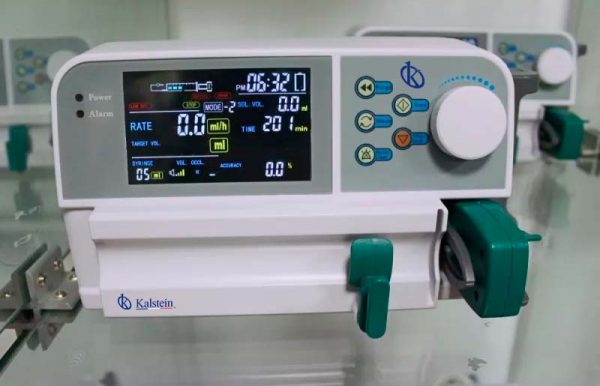Advanced technologies in medicine in the 21st century have significantly improved patient care in Intensive Care Units (ICU). Among these innovations, infusion pumps have emerged as vital medical tools in the management of critically ill patients. Mechanical equipment designed to deliver drugs and fluids to patients who need to receive medication in a controlled, precise and constant manner, infusion pumps have become an essential piece of equipment in the ICU.
Their ability to deliver medication and nutrients accurately, their versatility in dose control and their ability to customize treatments make them an invaluable tool in modern critical care. Their contribution to improving patient health outcomes in the ICU is indisputable.
Use of Infusion Pumps in Critical Care
The infusion pump is a device capable of delivering a controlled flow of drugs or nutrients to the patient’s body, through intravenous or epidural systems. Its advantage lies in its ability to maintain a constant and precise rate, thus injecting accurate doses that prevent overdose and improve treatment efficacy. Fluids may include insulin, antibiotics, chemotherapies and analgesics, among others. Additionally, some pumps have alarm systems to indicate any variation in flow or line blockage.
In the ICU, infusion pumps play a key role in the monitoring and treatment of critical patients. These devices allow the controlled administration of potently active drugs and anesthetics, essential in the management of critically ill patients. They assist in pain management, allowing the programmed and constant administration of analgesics. In addition, they are vital for parenteral feeding, supplying necessary nutrients to those patients who cannot consume food by normal routes.
Specific Infusion Pump Applications
Administration of Medications: The main application of infusion pumps in the ICU is to administer exact doses of medications at specific intervals. These devices allow the personalization of treatment, adapting the infusion rate to the individual needs of each patient.
Parenteral nutrition: Infusion pumps are essential for the delivery of intravenous nutrition in patients who cannot be fed orally. They allow the administration of essential nutrients and fluids, maintaining the balance of energy and water in the patient’s body.
- Anesthetic Administration: In intensive care, these devices are used to administer anesthetics constantly during operations or painful procedures.
What we offer at Kalstein
In short, infusion pumps have become a crucial ally in ICU patient care. As a manufacturer of laboratory equipment we can offer you the best prices in the market, designed with resistant materials and above all that meet the requirements of quality and European certification; learn more about us HERE, if you want to process your purchase, and you have doubts about the different types of infusion pumps, discover their characteristics HERE.

